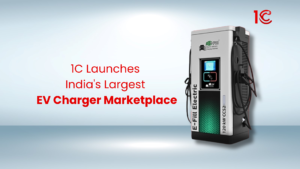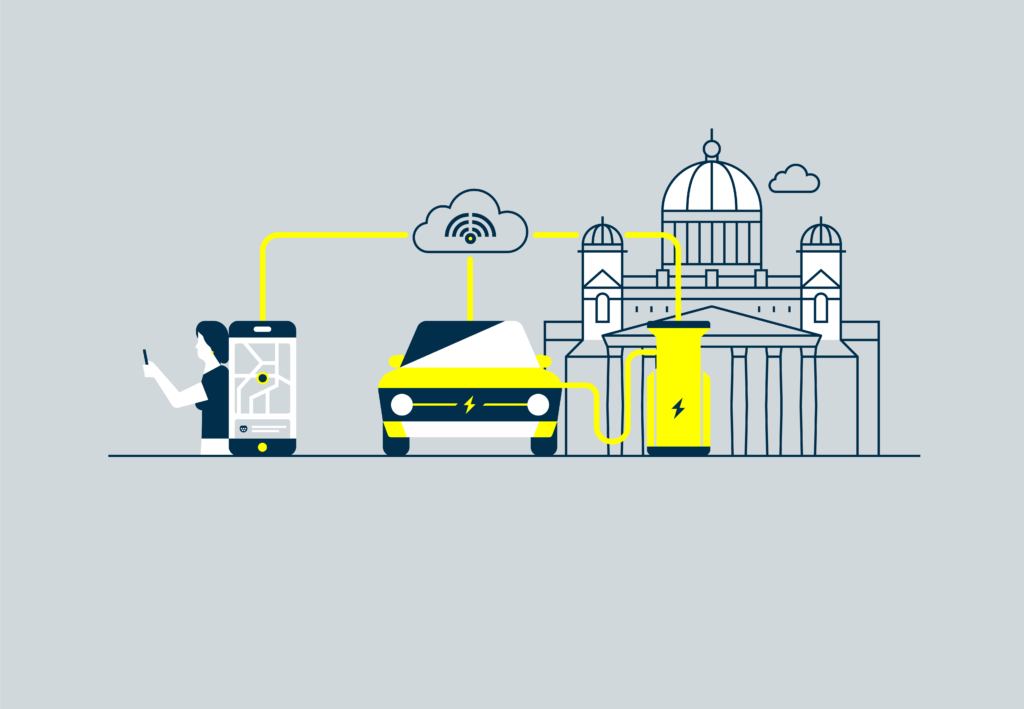
Menu
Menu

In smart EV charging, an electric vehicle and a charger establish a data connection, while the charger also communicates with a charging operator and an energy utility. This allows for automatic transmission of data from the charger to the operator and utility whenever an EV is plugged in, facilitating optimization of the charging process.
Smart EV charging uses intelligence and connectivity to optimise the charging process based on electricity cost, availability, and driver preferences. This system enables operators to monitor and manage energy consumption efficiently. For home charging, WiFi connects the smart charger to a mobile app and the energy provider. It establishes a link between the charger, EV, home power supply, and the grid. Users control the charging schedule via the app, avoiding peak usage times while ensuring the EV is ready for use at the desired time. This technology facilitates a more strategic and user-controlled approach to EV charging, enhancing overall efficiency.
When an electric vehicle undergoes smart charging, the owner connects the charging cable that initiates communication between the smart charger and the car. If the driver and car are registered with the EV charging provider, the process proceeds seamlessly. The smart charging platform identifies the driver, optimises energy usage during the session, monitors the vehicle’s battery charge, concludes the session upon completion, and invoices the driver as per agreed terms. Simultaneously, the charger communicates with other chargers, energy resources at the location, the grid, and the operator’s smart charging and energy management platform. This cloud-based software centrally manages chargers, sessions, and energy sources.
The difference between smart EV charging and other types of EV charging (Level 1, Level 2, Level 3) are mentioned below:
Aspect | Smart EV Charging | Other Types of EV Charging |
Technology | Utilizes intelligence and connectivity to optimize charging processes based on various factors such as electricity cost, availability, and user preferences. | Relies on standard charging methods without advanced technology integration. |
Remote Monitoring and Management | Allows for remote monitoring and management of charging sessions via mobile apps or online platforms. | Typically does not offer remote monitoring or management capabilities. |
Dynamic Charging Control | Can dynamically adjust charging rates based on grid conditions, energy demand, and user preferences. | Charging rates remain fixed and cannot be adjusted based on real-time factors. |
Integration with Renewable Energy Sources | Can integrate with renewable energy sources like solar panels or wind turbines to enable charging with clean energy. | Generally does not incorporate integration with renewable energy sources. |
Data-driven Insights | Collects data on charging patterns, energy usage, and grid conditions, providing valuable insights for optimization and planning. | Limited data collection and analysis capabilities compared to smart charging systems. |
Cost | May involve higher initial investment costs due to advanced technology integration. | Generally more cost-effective in terms of initial investment but may lack some advanced features. |
Convinience | Offers convenient and user-friendly charging experiences with features like real-time updates and centralized control. | Provides basic charging functionality but may lack convenience features available in smart charging systems. |
Also Read: What is EV Charging Anxiety?
EV drivers (private or fleet) have the following expectations from smart EV charging:
Following are some benefits of smart EV Charging:
Smart EV charging optimises energy usage and enhances efficiency by using intelligence and connectivity. It allows users to monitor and manage charging schedules via mobile apps, ensuring cost-effective and convenient charging. This technology benefits both EV drivers and stakeholders by balancing energy consumption, reducing costs, and integrating with renewable energy sources like solar panels. As electric vehicle adoption grows, smart EV charging plays a crucial role in advancing sustainable transportation solutions and meeting the evolving needs of the electric mobility sector.
Smart charging involves linking charging points with users and operators. When an EV is plugged in, the charging station transmits information, such as charging time and speed, to a centralized cloud-based management platform via Wi-Fi or Bluetooth. Additional data may also be sent to this cloud.
Smart EV charging stations incorporate advanced features that use the connection between your car, home, and electricity supply. These features leverage data intelligently to optimise and personalise charging sessions, enhancing energy efficiency.






© 2024 Massive Mobility Private Limited. All rights Reserved